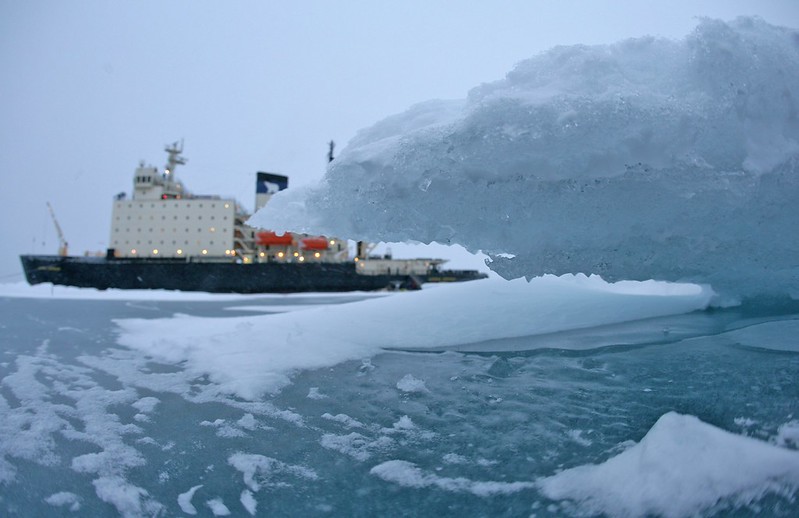Russia's future passes through the Arctic
The melting of the glaciers will make several stretches of the Arctic continental shelf available. And after the war, precisely the effects of climate change in this area of the world will become the main topic of dialogue even with those who today want to exclude Russia from the international community.
Moscow (AsiaNews) - In the face of an uncertain future of economic crisis and international isolation due to the war in Ukraine, Russia sees, on the contrary, a prospect of great benefits linked to climate change, which makes the exploitation of the great north of Siberia and the Arctic increasingly crucial.
The project is led by the former head of the Russian section of Transparency International, Ilja Šulmanov, has been active for a few weeks now. Together with a group of experts, he has started researching the Arctida programme, which is aimed at the beneficiaries of Russia's policy on the roof of the world.
The activities of several hundred people, officials, military personnel and businessmen, who are working to make Russia's presence in the Arctic effective, are being observed. Among them, however, there are no experts in ecology, but everything is in the hands of politics and strategic choices, as Šulmanov explains in an interview with Novaja Gazeta Evropa: 'Each group has its own particular interests, and Russia can become one of the main beneficiaries of climate change, because with global warming there is the possibility of opening new sea routes to the Arctic, leading to a radical change in logistics and greatly reducing the distance, for example, between China and Europe, by more than 30%."
This would obviously affect the prices of transported goods.
The melting of the glaciers will make several stretches of the Arctic continental shelf available, not to mention that 30% of the undiscovered gas reserves, and 13% of the oil, are located in the Arctic area.
Another major interest at stake is the military one: if Finland, by joining NATO, also raises an armed barrier against Russia, this could be 'circumvented' from above. The Scandinavian countries, although located on the borders of the Arctic, are not considered as its users, while Russia occupies the largest part of its territory (53%), compared to Denmark with Greenland, Canada and the USA with Alaska, as well as various Russian, American and Canadian island groups.
Most Russian projects in the Arctic are supported directly or indirectly by the state budget, with increasing investment in all sectors. The dominant Russian presence in the area allows Moscow to make autonomous decisions, and at the same time block the initiatives of other countries.
After the war, the Arctic will become the main topic of dialogue even with those who today want to exclude Russia from the international community, believes Šulmanov, 'because there can be no conflict here, it is a matter that concerns the life of the entire planet'.
In fact, the war interrupted an international collaboration that was quite active, with the creation of an Arctic Council that Russia was to chair between 2021 and 2023, and which could not see the light of day.
During these two years on the Russian side, public events and other initiatives that were supposed to carry out the Council's programme continue to be organised, and there are similar groups of experts and institutions involved in other countries, which in turn propose different programmes, at least on aspects that do not directly concern Russia.
Putin himself has made numerous proclamations in the past months about the 'Northern Maritime Route' and the many projects related to it, and lately he has insisted on the priority of 'clearing' the Arctic of the many wastes left behind by human activities.
The first to be called upon to deal with the problem are the Russian governors of the northernmost regions of the European part of the Federation: that of Murmansk, Nenetsk, Karelia and Jamalo, at the top of the Urals. It is precisely this north-western sector that has long been the most active in economic and political relations with Europe, and the 'turn to Asia' on the melting ice does not appear feasible any time soon.
10/01/2022 09:21
06/09/2021 09:18







.png)










